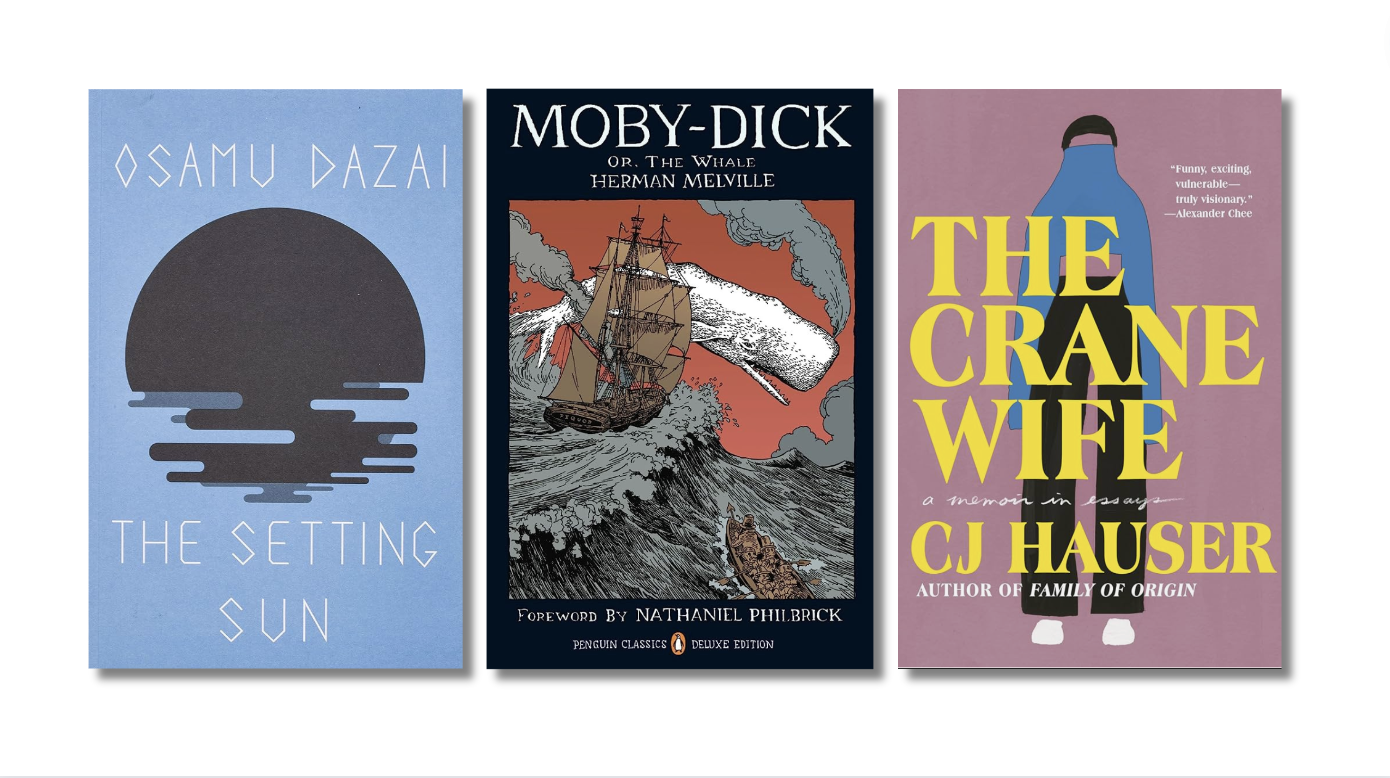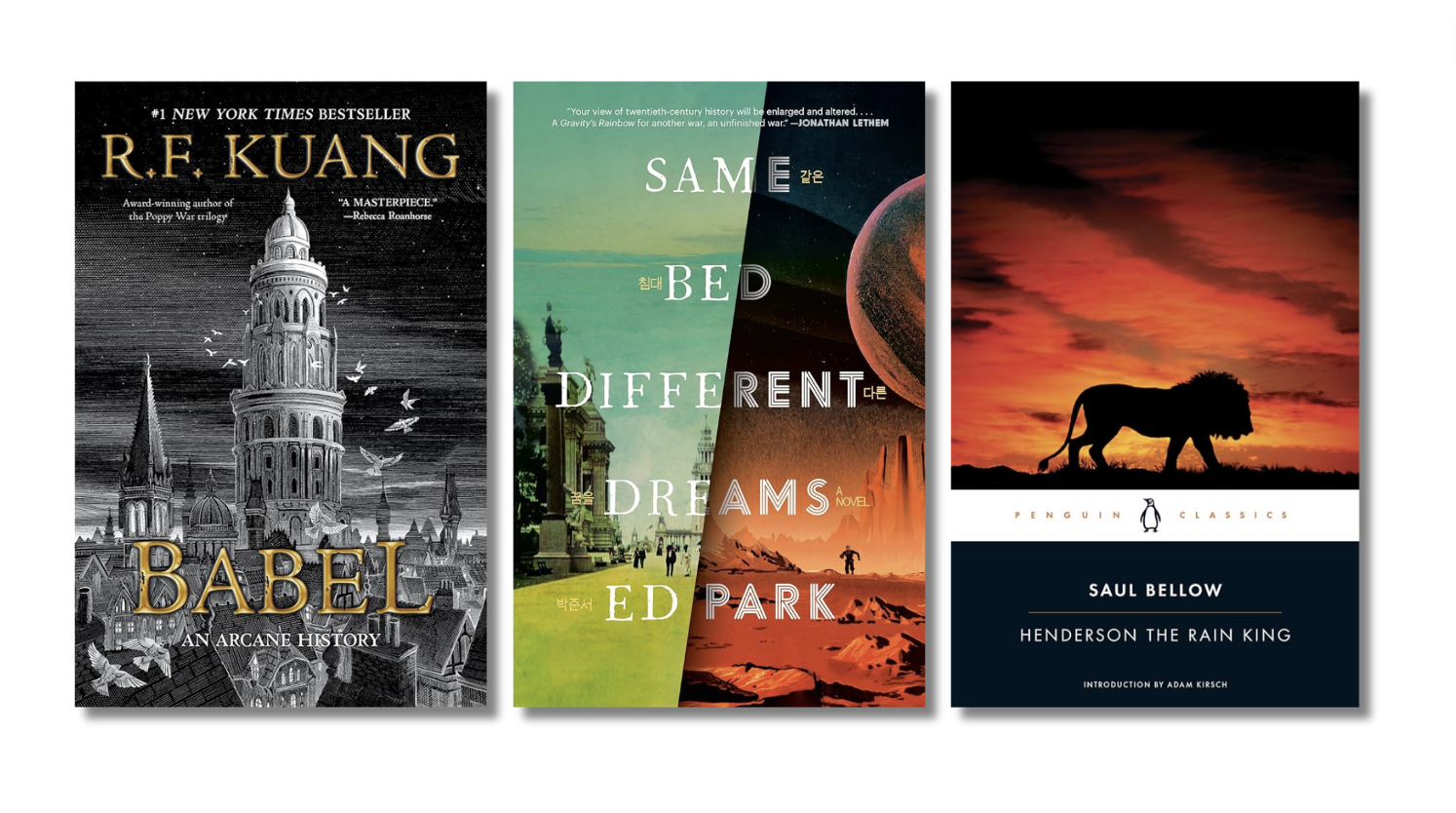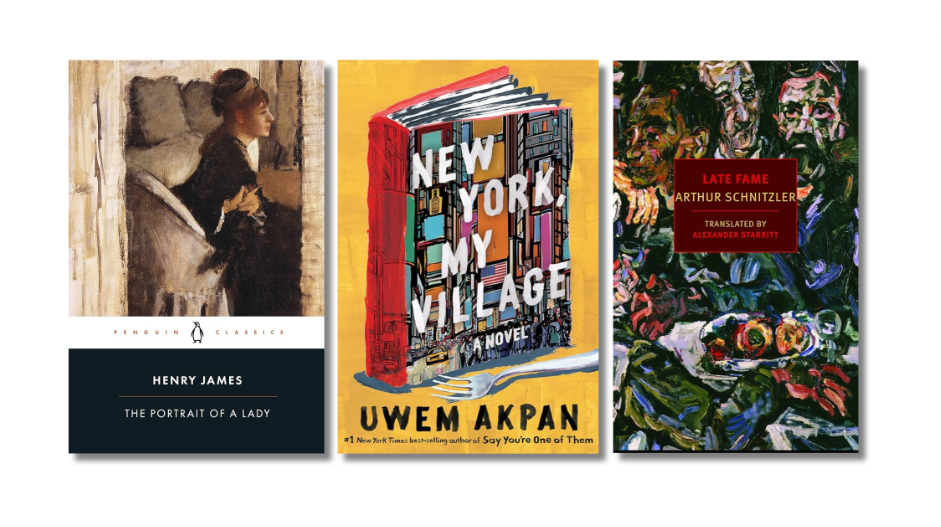I’m writing this in November, which is the month when I go through the notebook where I keep track of all the books I read, study the titles with a little star next to them, and try to remember which of these struck me the most. The three that remain most vividly in memory from this past year are a book about the shipping industry, a surrealist novel from a small press, and a work of speculative fiction about the Second American Civil War, the premise of which seemed horribly topical when I read it back in September and hasn’t become less troubling since.
1. The Shipping Industry
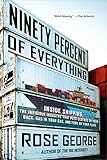 The British journalist Rose George’s Ninety Percent of Everything has one of those wildly unwieldy subtitles that haunt the non-fiction section — Inside Shipping, the Invisible Industry that Puts Clothes on Your Back, Gas in Your Car, Food on Your Plate — but unwieldy or not, the subtitle does sum up the situation fairly nearly, and it’s an elegantly written and deeply researched book. George goes to sea aboard a container ship, the Maersk Kendal, and in so doing steps into a world mostly closed to outsiders. Standing on the dock at Felixstowe in the U.K., looking up at the towering hull of the ship, she reflects on the oddly invisible nature of the industry relative to its importance:
The British journalist Rose George’s Ninety Percent of Everything has one of those wildly unwieldy subtitles that haunt the non-fiction section — Inside Shipping, the Invisible Industry that Puts Clothes on Your Back, Gas in Your Car, Food on Your Plate — but unwieldy or not, the subtitle does sum up the situation fairly nearly, and it’s an elegantly written and deeply researched book. George goes to sea aboard a container ship, the Maersk Kendal, and in so doing steps into a world mostly closed to outsiders. Standing on the dock at Felixstowe in the U.K., looking up at the towering hull of the ship, she reflects on the oddly invisible nature of the industry relative to its importance:
These ships and boxes belong to a business that feeds, clothes, warms, and supplies us. They have fueled if not created globalization. They are the reason behind your cheap T-shirt and reasonably priced television. But who looks behind a television now and sees the ship that brought it? Who cares about the men who steered your breakfast cereal through winter storms? How ironic that the more ships have grown in size and consequence, the less space they take up in our imagination.
“Are you reading that for research?” a couple of people asked, when they saw me reading it.
“Yes,” I said, which wasn’t untrue, but also easier than explaining that I’ve always been interested in the shipping industry, which is probably not terribly uncommon among people who grew up by the ocean and hold childhood memories of grey horizons with container ships passing, floating citadels crossing unimaginable distances. I’ve spent a lot of time in hotel rooms over these past couple years, and the one I liked best was in St. John’s, Newfoundland, because the view was of the docks across the street, where another Maersk ship was being loaded when I went to bed. The ship was gone by morning.
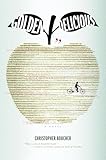 2. A Surrealist Novel From a Small Press
2. A Surrealist Novel From a Small Press
The only thing I don’t like about Christopher Boucher’s work is that it’s almost impossible to do it justice when I’m trying to explain it to people. (I praised his first novel, How to Keep Your Volkswagen Alive, at some length back in 2011. It was about a man whose girlfriend gives birth to a 1971 Volkswagen Beetle.) His second novel, Golden Delicious, is in more or less the same surrealist vein and infused with the same strange brilliance, but this time it’s a kind of meta-novel, which is to say that the characters know they’re in a novel. Their novel’s Reader is a character, with whom the protagonist goes on bicycle rides. The protagonist doesn’t have a name, but he does have a pet sentence. If you ride your bike to the edge of town, you’ll reach the margins, which are sometimes a little sketchy.
The language in Boucher’s novel isn’t just alive; it gets into fights. (“Shortly after that, two clauses got in a fight in the margin across the street. This would happen every once in a while — you’d hear the wild, high squeal and pitter-patter of language chasing language through trees.”) Sentences sometimes skitter away, as in: “Just then a small sentence scampered across the page. My Mom lunged at it, picked it up by the scruff of its vowel and tossed it into the margin.”
The whole thing’s a bit convoluted, peculiar, often very funny, and also deeply, improbably moving, because here, as in Boucher’s debut novel, the entire high-wire act is in service to a deadly serious story about belonging, and about the agonies and joys of being in a family.
 3. A Novel That Isn’t Out Yet
3. A Novel That Isn’t Out Yet
It is arguably slightly obnoxious to recommend novels that aren’t out yet, but the book that I found the most haunting this year doesn’t actually come out until April. Omar El Akkad is a Canadian journalist who’s covered topics ranging from terrorism to the gradual disappearance of Louisiana beneath the water. His debut novel, American War, opens with the outbreak of the Second American Civil War in 2074. Sarat Chestnut is six years old when the war begins, and El Akkad follows her through her years in a displaced persons camp and into the war’s aftermath. The war’s ostensible trigger is the South’s refusal to stop using banned fossil fuels, but it seems clear that this is essentially a pretext; the problem was never really oil, the problem was that two incompatible cultures have emerged in one country and the Red and Blue states have found themselves on a collision course. (Seems improbable, I know, but stay with me here.) The premise is harrowing, the prose is stark and beautiful, the plotting is impeccable, and there’s something utterly heartbreaking in El Akkad’s subtle rendition of the ways in which war shapes the human soul.
More from A Year in Reading 2016
Don’t miss: A Year in Reading 2015, 2014, 2013, 2012, 2011, 2010, 2009, 2008, 2007, 2006, 2005





